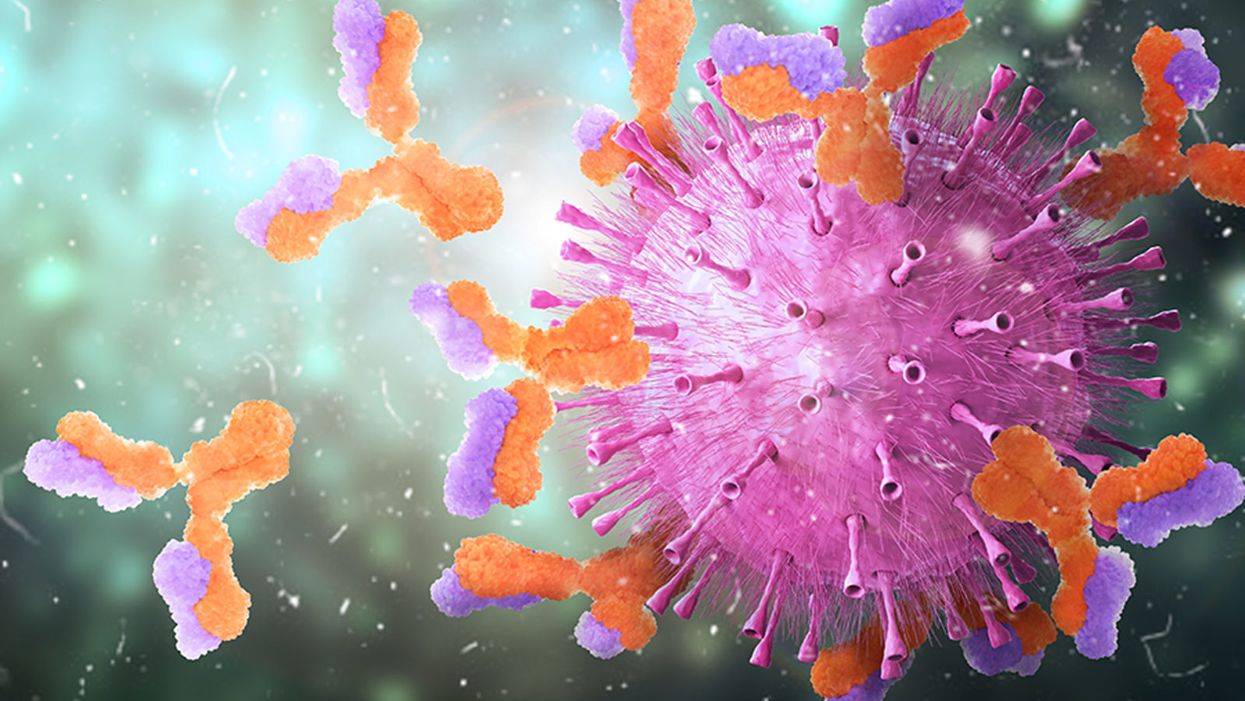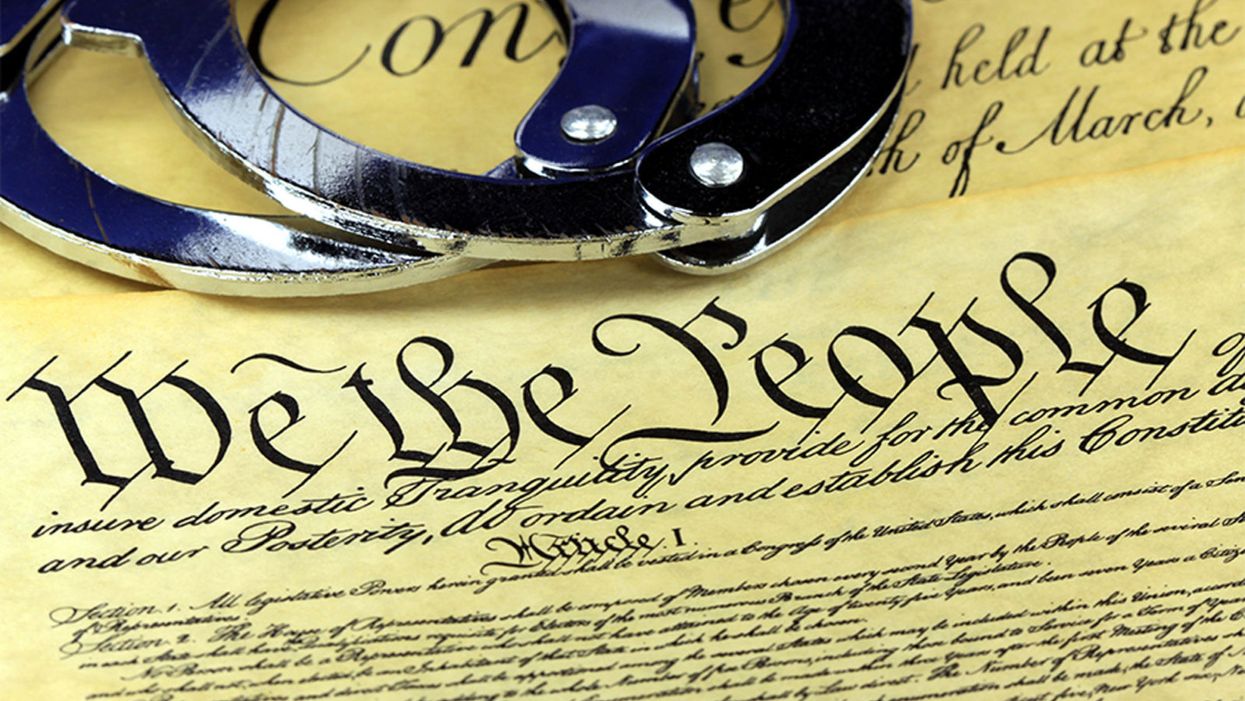Dec. 17th Event: The Latest on Omicron, Boosters, and Immunity
Kira Peikoff was the editor-in-chief of Leaps.org from 2017 to 2021. As a journalist, her work has appeared in The New York Times, Newsweek, Nautilus, Popular Mechanics, The New York Academy of Sciences, and other outlets. She is also the author of four suspense novels that explore controversial issues arising from scientific innovation: Living Proof, No Time to Die, Die Again Tomorrow, and Mother Knows Best. Peikoff holds a B.A. in Journalism from New York University and an M.S. in Bioethics from Columbia University. She lives in New Jersey with her husband and two young sons. Follow her on Twitter @KiraPeikoff.
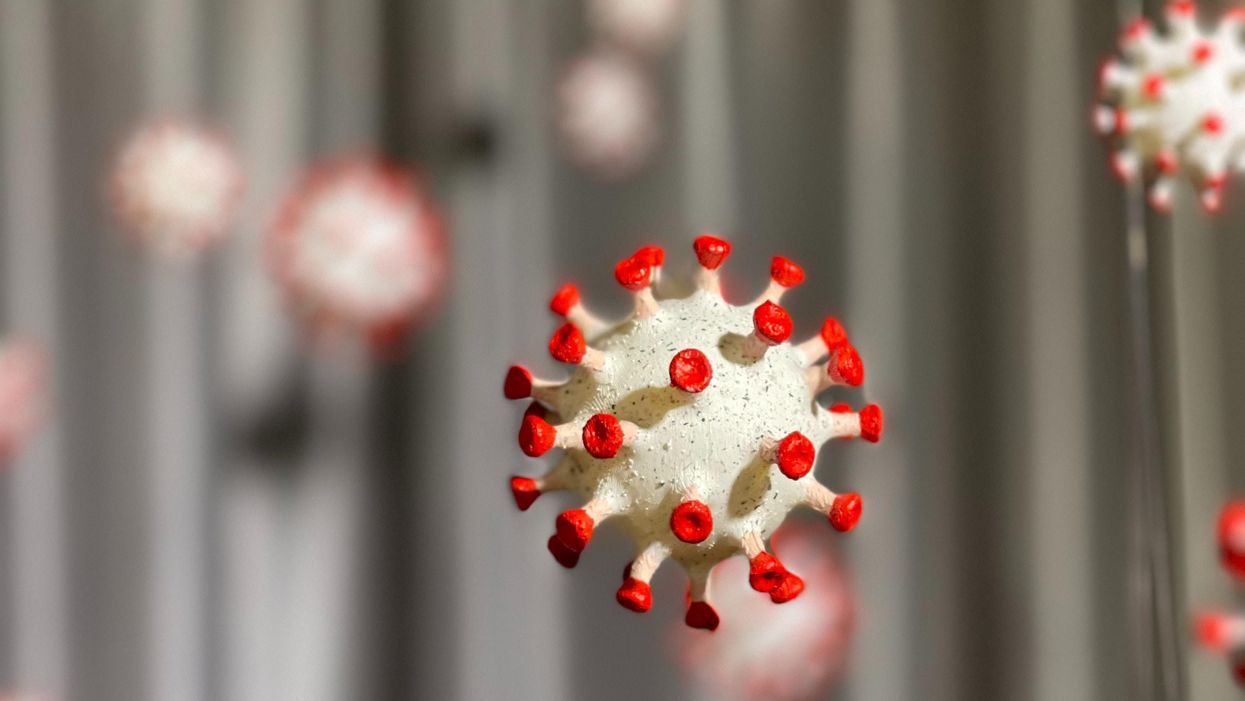
The Omicron variant poses new uncertainty for the vaccines, which four leading experts will address during our virtual event on December 17th, 2021.
This virtual event will convene leading scientific and medical experts to discuss the most pressing questions around the new Omicron variant, including what we know so far about its ability to evade COVID-19 vaccines, the role of boosters in eliciting heightened immunity, and the science behind variants and vaccines. A public Q&A will follow the expert discussion.
EVENT INFORMATION:
Date: Friday Dec 17, 2021
2:00pm - 3:30pm EST
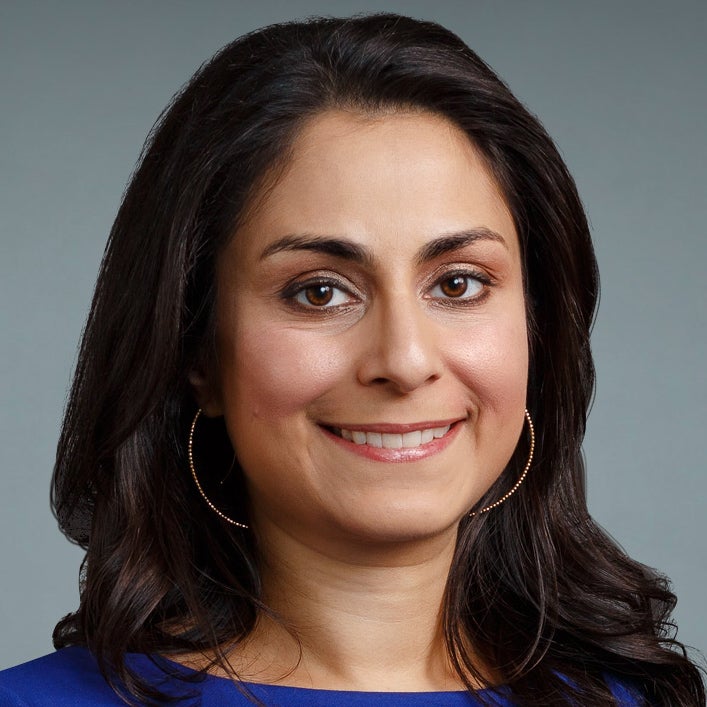
Dr. Céline Gounder, MD, ScM, is the CEO/President/Founder of Just Human Productions, a non-profit multimedia organization. She is also the host and producer of American Diagnosis, a podcast on health and social justice, and Epidemic, a podcast about infectious disease epidemics and pandemics. She served on the Biden-Harris Transition COVID-19 Advisory Board.
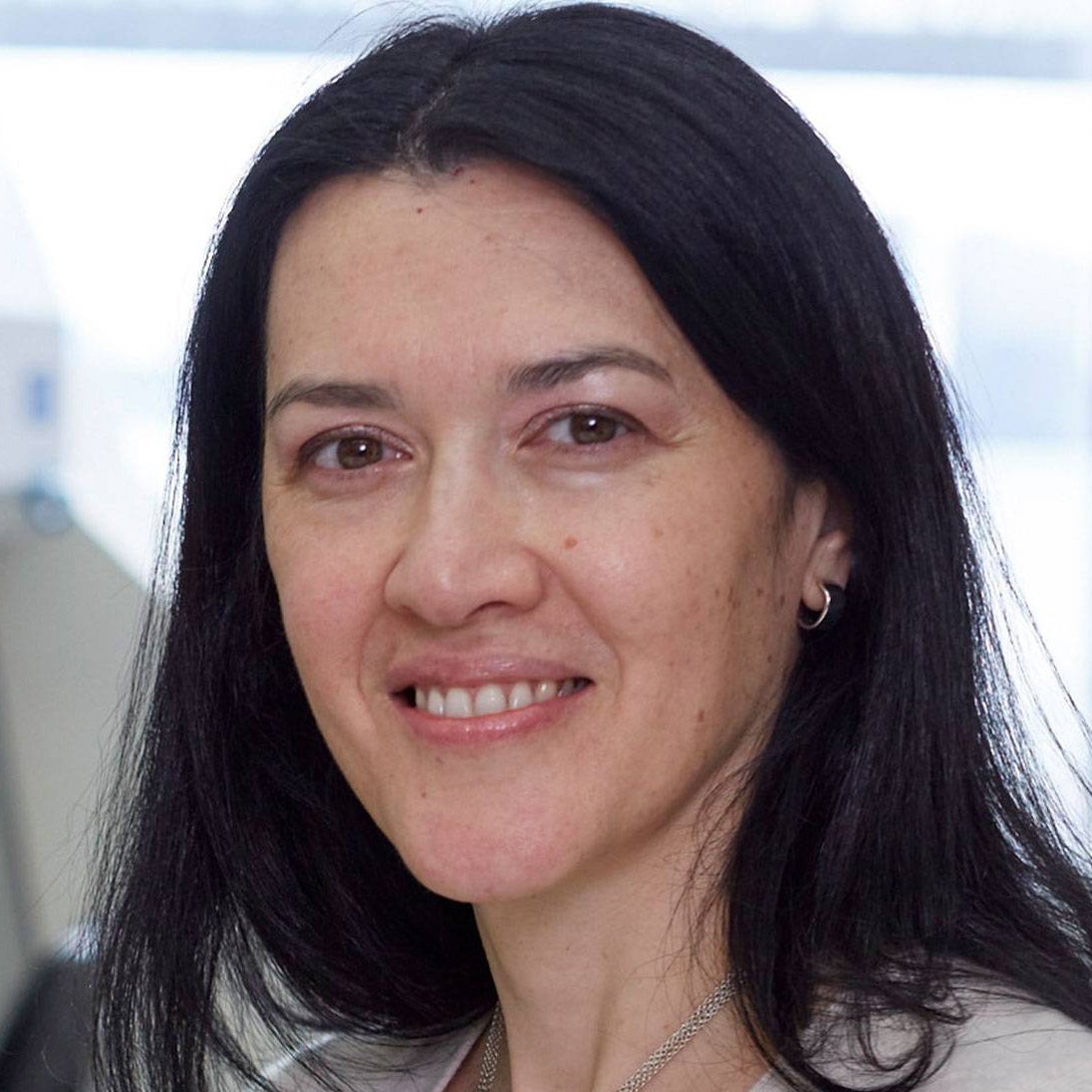 Dr. Theodora Hatziioannou, Ph.D., is a Research Associate Professor in the Laboratory of Retrovirology at The Rockefeller University. Her research includes identifying plasma samples from recovered COVID-19 patients that contain antibodies capable of neutralizing the SARS-CoV-2 coronavirus.
Dr. Theodora Hatziioannou, Ph.D., is a Research Associate Professor in the Laboratory of Retrovirology at The Rockefeller University. Her research includes identifying plasma samples from recovered COVID-19 patients that contain antibodies capable of neutralizing the SARS-CoV-2 coronavirus.
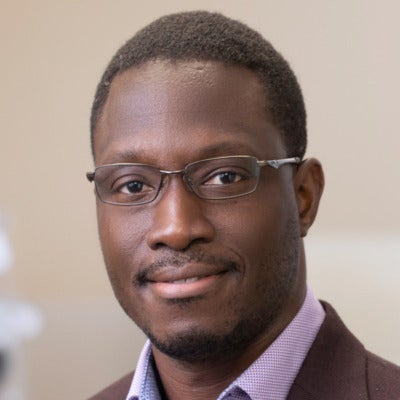
Dr. Onyema Ogbuagu, MBBCh, is an Associate Professor at Yale School of Medicine and an infectious disease specialist who treats COVID-19 patients and leads Yale’s clinical studies around COVID-19. He ran Yale’s trial of the Pfizer/BioNTech vaccine.
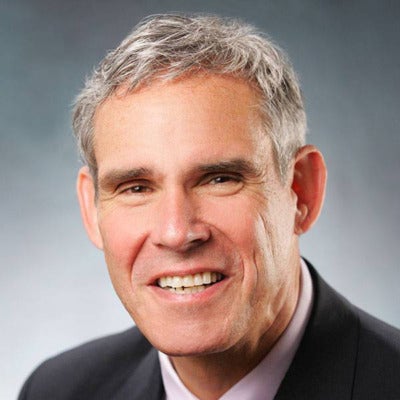
Dr. Eric Topol, M.D., is a cardiologist, scientist, professor of molecular medicine, and the director and founder of Scripps Research Translational Institute. He has led clinical trials in over 40 countries with over 200,000 patients and pioneered the development of many routinely used medications.
This event is the fourth of a four-part series co-hosted by Leaps.org, the Aspen Institute Science & Society Program, and the Sabin–Aspen Vaccine Science & Policy Group, with generous support from the Gordon and Betty Moore Foundation and the Howard Hughes Medical Institute.
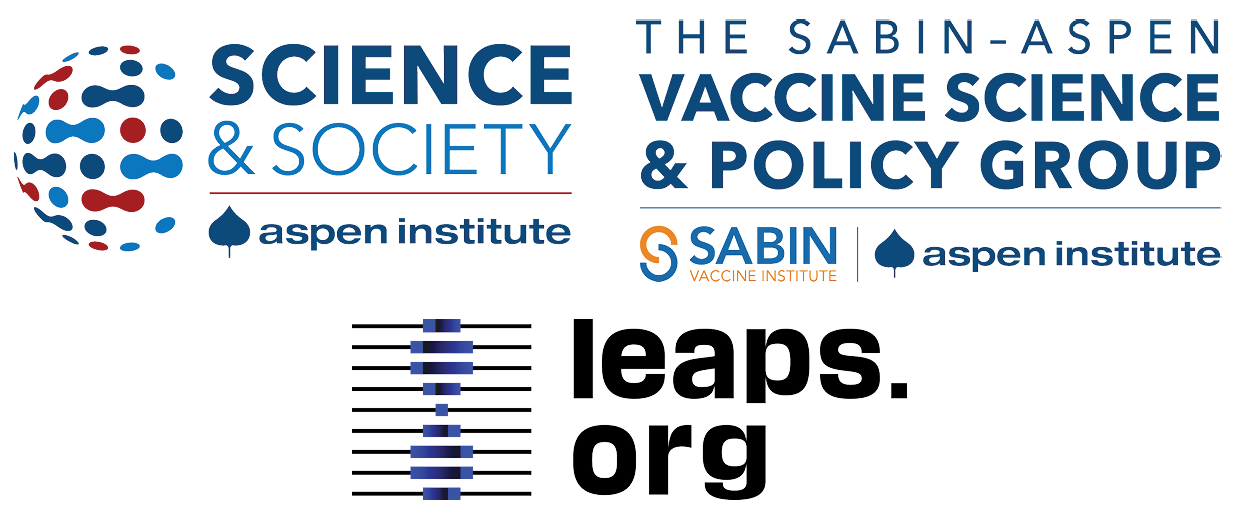
Kira Peikoff was the editor-in-chief of Leaps.org from 2017 to 2021. As a journalist, her work has appeared in The New York Times, Newsweek, Nautilus, Popular Mechanics, The New York Academy of Sciences, and other outlets. She is also the author of four suspense novels that explore controversial issues arising from scientific innovation: Living Proof, No Time to Die, Die Again Tomorrow, and Mother Knows Best. Peikoff holds a B.A. in Journalism from New York University and an M.S. in Bioethics from Columbia University. She lives in New Jersey with her husband and two young sons. Follow her on Twitter @KiraPeikoff.
Harvard Researchers Are Using a Breakthrough Tool to Find the Antibodies That Best Knock Out the Coronavirus
Knowing which antibodies bind best to the coronavirus can help guide new medicines and vaccine development.
To find a cure for a deadly infectious disease in the 1995 medical thriller Outbreak, scientists extract the virus's antibodies from its original host—an African monkey.
"When a person is infected, the immune system makes antibodies kind of blindly."
The antibodies prevent the monkeys from getting sick, so doctors use these antibodies to make the therapeutic serum for humans. With SARS-CoV-2, the original hosts might be bats or pangolins, but scientists don't have access to either, so they are turning to the humans who beat the virus.
Patients who recovered from COVID-19 are valuable reservoirs of viral antibodies and may help scientists develop efficient therapeutics, says Stephen J. Elledge, professor of genetics and medicine at Harvard Medical School in Boston. Studying the structure of the antibodies floating in their blood can help understand what their immune systems did right to kill the pathogen.
When viruses invade the body, the immune system builds antibodies against them. The antibodies work like Velcro strips—they use special spots on their surface called paratopes to cling to the specific spots on the viral shell called epitopes. Once the antibodies circulating in the blood find their "match," they cling on to the virus and deactivate it.
But that process is far from simple. The epitopes and paratopes are built of various peptides that have complex shapes, are folded in specific ways, and may carry an electrical charge that repels certain molecules. Only when all of these parameters match, an antibody can get close enough to a viral particle—and shut it out.
So the immune system forges many different antibodies with varied parameters in hopes that some will work. "When a person is infected, the immune system makes antibodies kind of blindly," Elledge says. "It's doing a shotgun approach. It's not sure which ones will work, but it knows once it's made a good one that works."
Elledge and his team want to take the guessing out of the process. They are using their home-built tool VirScan to comb through the blood samples of the recovered COVID-19 patients to see what parameters the efficient antibodies should have. First developed in 2015, the VirScan has a library of epitopes found on the shells of viruses known to afflict humans, akin to a database of criminals' mug shots maintained by the police.
Originally, VirScan was meant to reveal which pathogens a person overcame throughout a lifetime, and could identify over 1,000 different strains of viruses and bacteria. When the team ran blood samples against the VirScan's library, the tool would pick out all the "usual suspects." And unlike traditional blood tests called ELISA, which can only detect one pathogen at a time, VirScan can detect all of them at once. Now, the team has updated VirScan with the SARS-CoV-2 "mug shot" and is beginning to test which antibodies from the recovered patients' blood will bind to them.
Knowing which antibodies bind best can also help fine-tune vaccines.
Obtaining blood samples was a challenge that caused some delays. "So far most of the recovered patients have been in China and those samples are hard to get," Elledge says. It also takes a person five to 10 days to develop antibodies, so the blood must be drawn at the right time during the illness. If a person is asymptomatic, it's hard to pinpoint the right moment. "We just got a couple of blood samples so we are testing now," he said. The team hopes to get some results very soon.
Elucidating the structure of efficient antibodies can help create therapeutics for COVID-19. "VirScan is a powerful technology to study antibody responses," says Harvard Medical School professor Dan Barouch, who also directs the Center for Virology and Vaccine Research. "A detailed understanding of the antibody responses to COVID-19 will help guide the design of next-generation vaccines and therapeutics."
For example, scientists can synthesize antibodies to specs and give them to patients as medicine. Once vaccines are designed, medics can use VirScan to see if those vaccinated again COVID-19 generate the necessary antibodies.
Knowing which antibodies bind best can also help fine-tune vaccines. Sometimes, viruses cause the immune system to generate antibodies that don't deactivate it. "We think the virus is trying to confuse the immune system; it is its business plan," Elledge says—so those unhelpful antibodies shouldn't be included in vaccines.
More importantly, VirScan can also tell which people have developed immunity to SARS-CoV-2 and can return to their workplaces and businesses, which is crucial to restoring the economy. Knowing one's immunity status is especially important for doctors working on the frontlines, Elledge notes. "The resistant ones can intubate the sick."
Lina Zeldovich has written about science, medicine and technology for Popular Science, Smithsonian, National Geographic, Scientific American, Reader’s Digest, the New York Times and other major national and international publications. A Columbia J-School alumna, she has won several awards for her stories, including the ASJA Crisis Coverage Award for Covid reporting, and has been a contributing editor at Nautilus Magazine. In 2021, Zeldovich released her first book, The Other Dark Matter, published by the University of Chicago Press, about the science and business of turning waste into wealth and health. You can find her on http://linazeldovich.com/ and @linazeldovich.
Defenders of civil liberties fear that the erosion of privacy will become a long-term consequence of the pandemic.
As countries around the world combat the coronavirus outbreak, governments that already operated sophisticated surveillance programs are ramping up the tracking of their citizens.
"The potential for invasions of privacy, abuse, and stigmatization is enormous."
Countries like China, South Korea, Israel, Singapore and others are closely monitoring citizens to track the spread of the virus and prevent further infections, and policymakers in the United States have proposed similar steps. These shifts in policy have civil liberties defenders alarmed, as history has shown increases in surveillance tend to stick around after an emergency is over.
In China, where the virus originated and surveillance is already ubiquitous, the government has taken measures like having people scan a QR code and answer questions about their health and travel history to enter their apartment building. The country has also increased the tracking of cell phones, encouraged citizens to report people who appear to be sick, utilized surveillance drones, and developed facial recognition that can identify someone even if they're wearing a mask.
In Israel, the government has begun tracking people's cell phones without a court order under a program that was initially meant to counter terrorism. Singapore has also been closely tracking people's movements using cell phone data. In South Korea, the government has been monitoring citizens' credit card and cell phone data and has heavily utilized facial recognition to combat the spread of the coronavirus.
Here at home, the United States government and state governments have been using cell phone data to determine where people are congregating. White House senior adviser Jared Kushner's task force to combat the coronavirus outbreak has proposed using cell phone data to track coronavirus patients. Cities around the nation are also using surveillance drones to maintain social distancing orders. Companies like Apple and Google that work closely with the federal government are currently developing systems to track Americans' cell phones.
All of this might sound acceptable if you're worried about containing the outbreak and getting back to normal life, but as we saw when the Patriot Act was passed in 2001 in the wake of the 9/11 terrorist attacks, expansions of the surveillance state can persist long after the emergency that seemed to justify them.
Jay Stanley, senior policy analyst with the ACLU Speech, Privacy, and Technology Project, says that this public health emergency requires bold action, but he worries that actions may be taken that will infringe on our privacy rights.
"This is an extraordinary crisis that justifies things that would not be justified in ordinary times, but we, of course, worry that any such things would be made permanent," Stanley says.
Stanley notes that the 9/11 situation was different from this current situation because we still face the threat of terrorism today, and we always will. The Patriot Act was a response to that threat, even if it was an extreme response. With this pandemic, it's quite possible we won't face something like this again for some time.
"We know that for the last seven or eight decades, we haven't seen a microbe this dangerous become a pandemic, and it's reasonable to expect it's not going to be happening for a while afterward," Stanley says. "We do know that when a vaccine is produced and is produced widely enough, the COVID crisis will be over. This does, unlike 9/11, have a definitive ending."
The ACLU released a white paper last week outlining the problems with using location data from cell phones and how policymakers should proceed when they discuss the usage of surveillance to combat the outbreak.
"Location data contains an enormously invasive and personal set of information about each of us, with the potential to reveal such things as people's social, sexual, religious, and political associations," they wrote. "The potential for invasions of privacy, abuse, and stigmatization is enormous. Any uses of such data should be temporary, restricted to public health agencies and purposes, and should make the greatest possible use of available techniques that allow for privacy and anonymity to be protected, even as the data is used."
"The first thing you need to combat pervasive surveillance is to know that it's occurring."
Sara Collins, policy counsel at the digital rights organization Public Knowledge, says that one of the problems with the current administration is that there's not much transparency, so she worries surveillance could be increased without the public realizing it.
"You'll often see the White House come out with something—that they're going to take this action or an agency just says they're going to take this action—and there's no congressional authorization," Collins says. "There's no regulation. There's nothing there for the public discourse."
Collins says it's almost impossible to protect against infringements on people's privacy rights if you don't actually know what kind of surveillance is being done and at what scale.
"I think that's very concerning when there's no accountability and no way to understand what's actually happening," Collins says. "The first thing you need to combat pervasive surveillance is to know that it's occurring."
We should also be worried about corporate surveillance, Collins says, because the tech companies that keep track of our data work closely with the government and do not have a good track record when it comes to protecting people's privacy. She suspects these companies could use the coronavirus outbreak to defend the kind of data collection they've been engaging in for years.
Collins stresses that any increase in surveillance should be transparent and short-lived, and that there should be a limit on how long people's data can be kept. Otherwise, she says, we're risking an indefinite infringement on privacy rights. Her organization will be keeping tabs as the crisis progresses.
It's not that we shouldn't avail ourselves of modern technology to fight the pandemic. Indeed, once lockdown restrictions are gradually lifted, public health officials must increase their ability to isolate new cases and trace, test, and quarantine contacts.
But tracking the entire populace "Big Brother"-style is not the ideal way out of the crisis. Last week, for instance, a group of policy experts -- including former FDA Commissioner Scott Gottlieb -- published recommendations for how to achieve containment. They emphasized the need for widespread diagnostic and serologic testing as well as rapid case-based interventions, among other measures -- and they, too, were wary of pervasive measures to follow citizens.
The group wrote: "Improved capacity [for timely contact tracing] will be most effective if coordinated with health care providers, health systems, and health plans and supported by timely electronic data sharing. Cell phone-based apps recording proximity events between individuals are unlikely to have adequate discriminating ability or adoption to achieve public health utility, while introducing serious privacy, security, and logistical concerns."
The bottom line: Any broad increases in surveillance should be carefully considered before we go along with them out of fear. The Founders knew that privacy is integral to freedom; that's why they wrote the Fourth Amendment to protect it, and that right shouldn't be thrown away because we're in an emergency. Once you lose a right, you don't tend to get it back.
